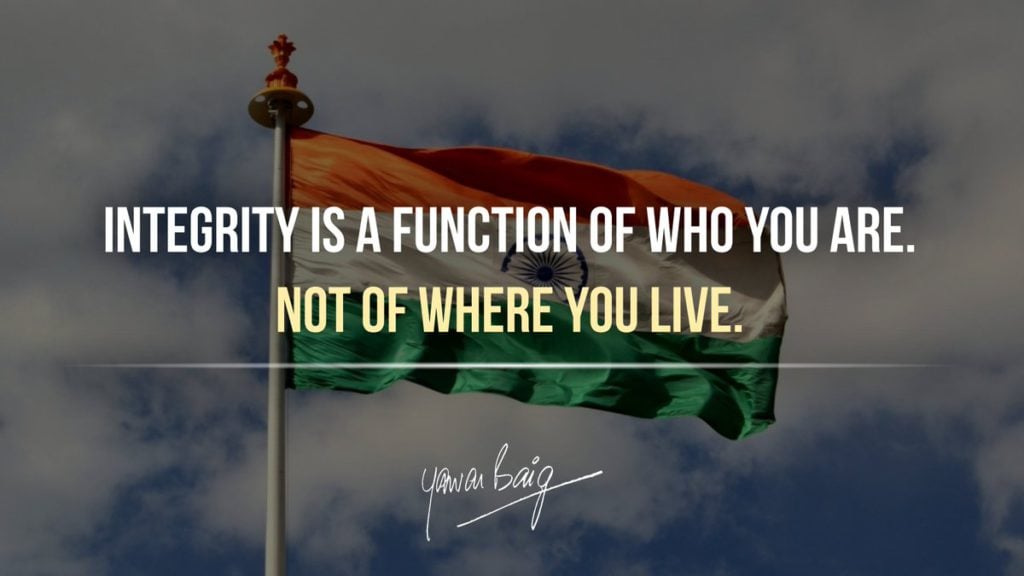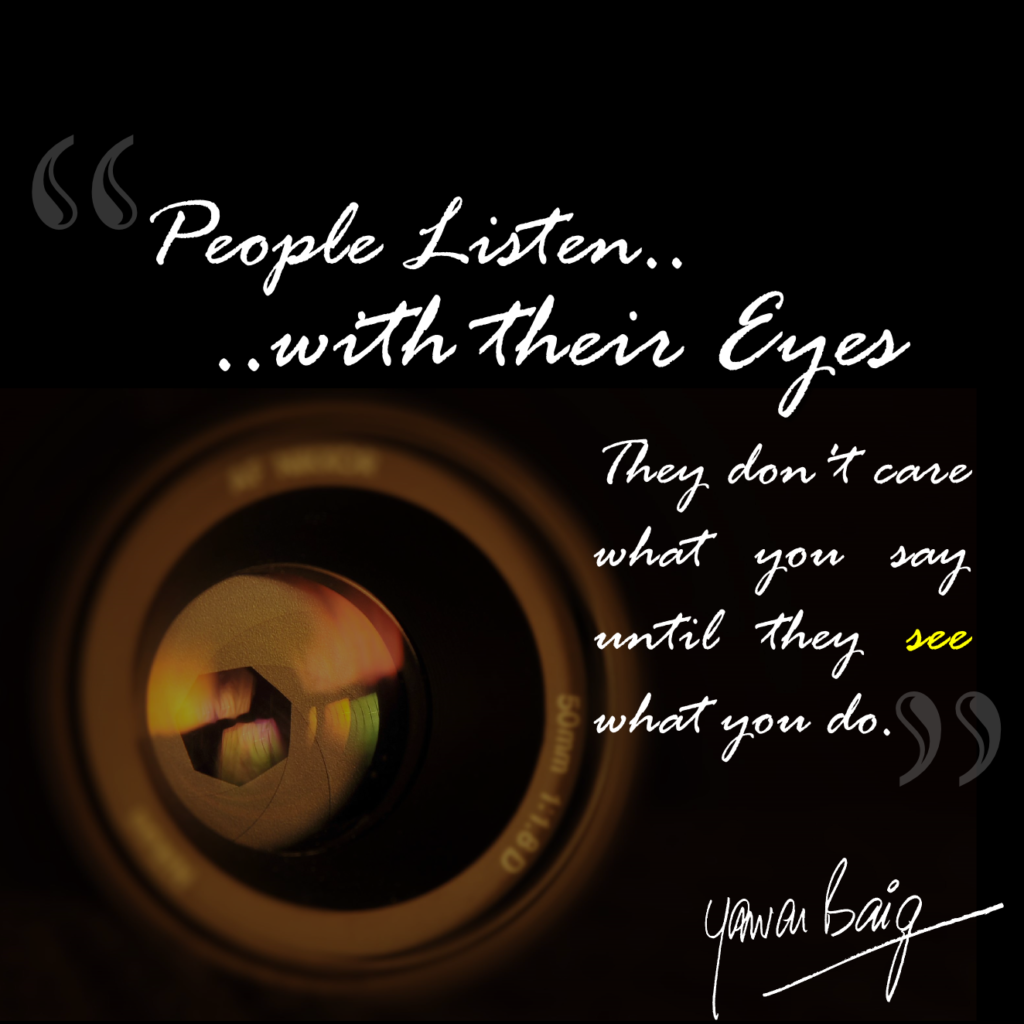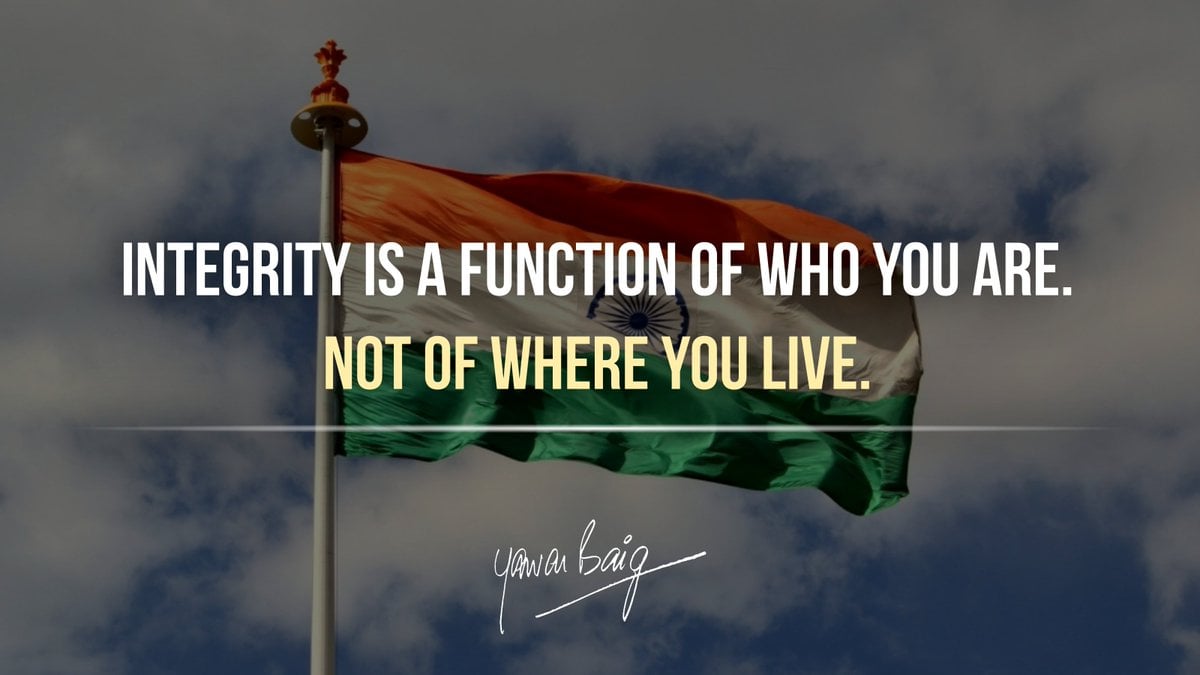When I launched into consulting in leadership development, I realized that a major disadvantage I had was that I was not hooked into the HR Manager network. I had never been an HR Manager and there was no way to be one now. So, I decided to leverage my strength – hands-on general management experience with intensive training in applied behavioral science and business management. The big learning for me was that in some cases it is better to leverage a strength than to try to remove or overcome a weakness. So instead of saying in effect, ‘I am sorry I have no HR experience’, I said, ‘My strength is that anything I tell you to do, I have done it myself on the shop floor. It is tried, tested, and it works. And if you have difficulties in making it work, call me and I can probably solve your issues for you. If I tell you about a stream, it is there, and the water is good to drink.’ That immediately established a bond with the actual clients of my service, the line managers. They were very happy to be trained by ‘one of their own kind’ who had been there and done that and knew from experience what they encountered and endured every day, rather than by an HR or Training expert who had little or no line management experience. I, on the other hand had more than 16 years (at the time I started my company in 1994) of hands-on experience in manufacturing and marketing which helped me to bring to the class live examples of what happens in the field, which people were immediately able to link to. Add to that my fluency in several languages I was able to link to people right away because people love it when you speak their language and feel that you really understand them. And you do.
I knew that the so-called great secret of selling is to sell; to hit the road and keep knocking on doors. It is as simple as that. And that is what I did. I made a list of companies operating in Bangalore and called their heads for meetings. I discovered that the best approach was to try to speak to the CEO, not the HR or Training Head. I seemed to have much in common with line managers and little in common with HR people and so that is what I did, with great success. Success, however, takes a little while to come. You must pay your dues first. And so, the first few months were tough. Initially I worked with two different friends but discovered that friendship and working together were not the same thing and so we parted company amicably and I launched Yawar Baig & Associates. What that meant in effect was that I got to lick my own stamps and post my own letters and knock on all doors myself.
There are two meetings that stay with me from that time. One was with the CEO of an Australian IT company which was the back office for a very large Australian bank. One of my friends who worked there told me that they needed a lot of training but the person who had to approve it was the Australian (White) CEO, who had a reputation for having a very short fuse. She told me that if I could convince him I would get regular work. Regular work was what I needed like a fish needs water, so I got his number, called him, introduced myself, and asked if I could meet him to talk about leadership training. He said to me, ‘Will five minutes do?’
I thought that was about the rudest thing that anyone could say but kept my thoughts to myself and said, ‘Yes of course. When can I come?’ He asked me to come the next morning at 9:00 AM. My logic was that if I could hook him in five minutes, then I would be able to get more time and if I couldn’t, then I would try something else. I prepared my speech very carefully and rehearsed it until I could do it backwards. When I met him, I spoke clearly and forcefully and exactly at four minutes I said, ‘That is all that I have to say, Sir. I am within the five minutes you gave me. Thank you very much.’ He said to me, ‘Na! Don’t worry about that. Tell me more about your work.’
And that was the beginning of regular work for the three years that I stayed in Bangalore. In the same company I also met Julius Aib, the CTO. We designed a course together called, CHSPM (Critical Human Skills for Project Managers). Julius would teach the Microsoft Workbench and I would teach the team building and communication skills modules. It was a highly successful course which I then taught across the world for more than two decades in a multitude of organizations, across industries. Julius was an Aikido teacher, and I joined his class and learnt Aikido, which more than the martial art that it is, is excellent training in self-confidence, concentration, and dedication to a goal. The concept of being centered which is the core ideology of Aikido is a very important tool to remaining unflustered and unaffected by negativity around us. In today’s world I believe this is a very important thing to learn. And Julius and I became lifelong friends.
The other meeting that I recall was with the CEO of a French American IT Multinational. I was introduced to him by a friend who was the head of HR in the company. The CEO (who we shall call Ajay) was ethnically Indian, but he was born and raised in the US and had worked there all his life and was culturally American for all intents and purposes. Ajay was frustrated with his team of direct reports. He said to me, ‘I try to be supportive, but they don’t take initiative or risk. They wait for me to tell them what to do. At their level this is very frustrating.’ He thought that a team building program would solve this. I didn’t think so, but I didn’t tell him that. I asked him for a chance to observe one of his meetings. I said that after observing the interaction, I would design the course. Ajay liked the idea and agreed. The following week, he invited me to his weekly top management meeting. He introduced me to his team in which apart from my friend the HR Head, I didn’t know anyone else. The meeting began. The main subject was a financial issue. Ajay outlined the problem and asked, ‘What do you guys think?’ The VP Finance (we will call him Vivek) raised his hand – almost like a child in a classroom, I thought. Ajay said, ‘Yes So-and-so!’ He suggested an idea. Ajay, with great enthusiasm, slammed his palm on the tabletop and said, ‘That is a FANTASTIC idea. Thank you, Vivek. Anyone else?’ There was total silence. Nobody said another word. I could see the frustration in Ajay’s face. I gave it a few minutes and as the silence lengthened and Ajay looked like he would explode, I said, ‘May I suggest that we take a break and grab some coffee?’ Ajay looked at me as if I was nuts, but I winked at him and he realized that this was a strategy and said, ‘That is a good idea. Let’s get some coffee and we will come back here in fifteen minutes.’
He grabbed my hand and took me into his office and said, ‘See what I told you! Nobody takes any initiative. They expect me to give all the answers. I am so supportive but there is no response.’ I listened to him and realized that more than anything else it was a cultural issue. His challenge was that since he was ethnically Indian, people expected him to understand the Indian business culture which he was having a hard time with since he had no experience with it. I asked him, ‘Ajay do you recall what happened? Please describe to me what happened.’
Ajay got irritated. ‘I am only trying to do the best that I can.’
I said, ‘Listen! Just describe to me what happened.’ Ajay said, ‘Vivek gave his suggestion, and I appreciated it.’
‘And how!’ I said.
Ajay bridled again. ‘So, what’s wrong with appreciating the guy?’
I said, ‘Nothing wrong with appreciating him. But when you do it in the way you did by slamming your palm of the table and saying, ‘FANTASTIC!’ you shut the door for others to say anything. Who wants to take the risk of saying anything when someone has already said something which is FANTASTIC?’
‘Ah! I was just saying that it was a good idea.’

‘Then say that. Say, ‘That is a good idea. Let’s hear from the others.’ This is India. Here, only if the cow jumps over the moon will anyone say that it is FANTASTIC. People can go through their entire working life without anyone ever saying that what they did was FANTASTIC, not because they don’t appreciate them but because hyperbole is not a part of our culture. You are American. In America every child is called ‘amazing’. Whatever he does is called ‘fantastic’. Here, it must be truly remarkable, one of its kind, first time in history, mind-blowingly glorious for someone to call it FANTASTIC. In this culture once you call something FANTASTIC, nobody else will take the chance of saying anything because almost by definition, what they say can’t be FANTASTIC because only one thing can be FANTASTIC and that has already been said.’ That made sense to him, and we went back to the meeting. He tried his best and things improved over time.
Meanwhile, Ajay still wanted to do a team-building event and asked me to do it. I designed a 3-day offsite trip and met him to explain what I had in mind. After he listened to what I had to say he asked me in typical American style, ‘That sounds good but how do I know it will work?’
I said to him, ‘Ajay, even I don’t know if it will work. But I think it will. If you are willing to take the chance, I will do this intervention for you. If you don’t like the results, then don’t pay me. If you like the results, then I want you to do two things; pay me and recommend me to your friends.’
Ajay laughed out and said, ‘I like your spirit. Let’s do it. And I accept your deal. If I don’t like it, I don’t pay you and if I like it then I will pay you and recommend you.’ As they say the rest is history. Ajay was responsible not only for more work in his company, but also for recommending me to many more companies in Bangalore. Having the CEO of a company making calls on your behalf is something that money can’t buy. I am very grateful to Ajay for his help.

One other thing which I did in those early, hungry days which stayed with me and had a long-term effect was my rigid unwillingness to violate anyone’s copyright. Integrity for me has always been an all-or-nothing value. Like the famous quote, ‘You can’t be slightly pregnant,’ I believe that you can’t be slightly dishonest. But of course, you must be willing to pay the price for your convictions. Unfortunately, in India, copyright has always been taken to mean the right to copy. And both companies and consultants have shamelessly photocopied questionnaires and used them without any sense of shame or wrongdoing. I always insisted that if we were going to use any copyrighted material, then the client had to pay and get it legally or I wouldn’t use it. I offered them alternatives but if they still insisted that they wanted to use the copyrighted stuff (like the MBTI for example) then they had to do it legally if they wanted me to teach the course. This came to a head in one instance and at a time which was a test of my own commitment to my values. I paid the price which though difficult, I was happy I did.
The training head of a very famous IT company, one of those who make a lot of noise about integrity and so on, called me and asked me to quote for a leadership course for their middle managers. We discussed the design of the course and what we would use in it, one of which was the Myers-Briggs Type Indicator (MBTI). I sent her my quote and she agreed and gave me the dates for the course. Then suddenly three days before we were to do the course, she called me and said, ‘Mr. Baig, can you please come and see me. We need to discuss something about the course.’ I was surprised because we had discussed everything, and I had made all the preparations and material. But I still went to see her because when a client calls, you go.
She said to me, ‘Mr. Baig, can we renegotiate the fee? We have decided to do the course for lower-level employees first and not middle management. So can you give us another quote for a lower amount?’
I was flabbergasted and said to her, ‘Madam, the quote is for the course. Who comes to the course is up to you. As far as I am concerned, once your employee enters the room, he or she is my client. I don’t care if it is the CEO or the security guard. They are all equally important for me. My quality of teaching doesn’t depend on who I teach. It depends on me, and I don’t change it for anyone. So, the fee remains the same.’
She then said to me, ‘Okay, then why don’t you use photocopies of the MBTI questionnaire so that we save money on the cost of the questionnaire. That way we both win.’
That got me both flabbergasted and mad. I said to her, ‘Don’t you realize that to photocopy and use the MBTI is illegal?’
She laughed the ‘grow-up’ kind of laugh and said, ‘Everybody does it. What can they do?’ By ‘they’ she meant CPP who owns the instrument.
I got up and said, ‘Madam, I don’t steal. I don’t cheat. What they can do or can’t do, doesn’t come into it. I don’t do it, not because of who they are and what they can do. I don’t do it because of who I am. If you don’t want to do the course, goodbye.’
She hastily tried another trick. ‘But you know Mr. Baig, if you agree to lower your fee or to do what I am suggesting, we can give you a lot of work.’
‘I am sorry Madam,’ I said, ‘I don’t work for people whose ethical standards I can’t respect.’ And I walked away from business at a time when I needed it desperately.

This was however another Critical Incident and a threshold. The result of this and one or two other similar incidents in the early years was that I got a reputation in the market for being completely inflexible on ethical matters. The result of it was that to this day, no client of mine including multinationals like GE, Motorola, Microsoft, and others have ever asked me to sign an NDA (non-disclosure agreement) which is a standard policy with them. That is a badge of honor for me. Many clients also invite me to very sensitive board meetings and policy formulation discussions, knowing full well that their competitors are also my clients. That is because they know how strongly I respect confidentiality and that whatever I participate in, remains with me, and will never go to anyone else. I have also had this rule about my students. If management teams want my opinion about my students, then my condition is that this is announced to the students before the program. If it is not announced, I don’t share my opinion with anyone. All choices have results, and I am very happy about the choices I made.
